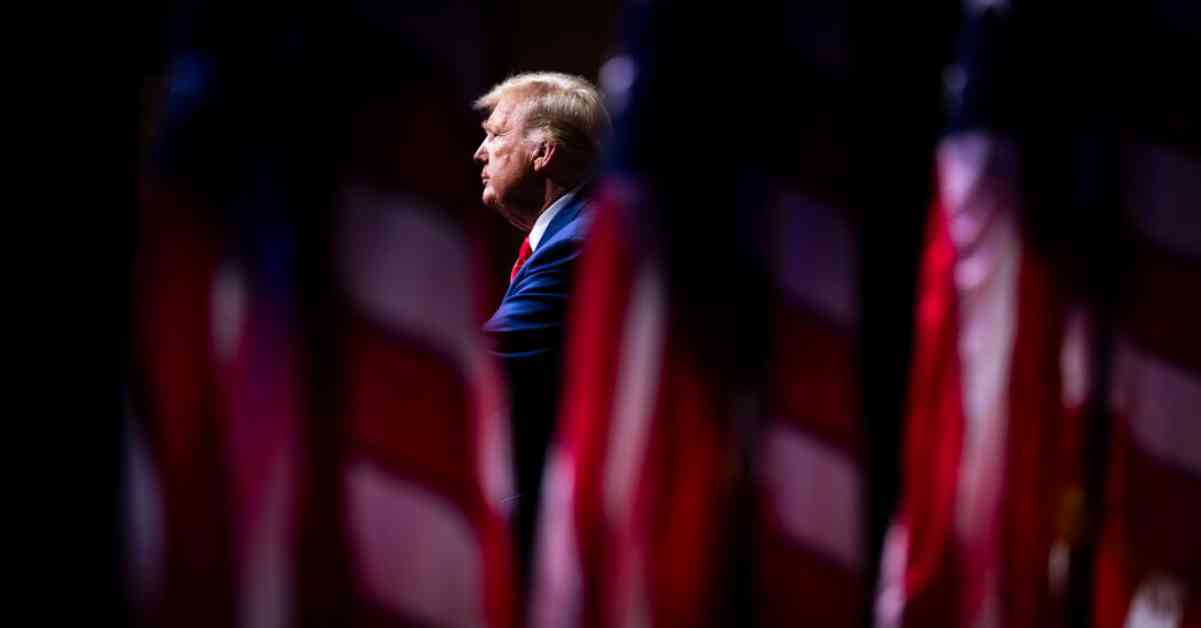Former President Donald J. Trump’s Controversial Plan to Deploy Soldiers on U.S. Soil
Former President Donald J. Trump has sparked controversy with his plans to utilize the military for a variety of domestic law enforcement purposes. His proposals include patrolling the border, suppressing protests, and even combating crime in cities governed by Democrats. This vision raises significant concerns about civil liberties and the traditional boundaries on federal power.
During the tumultuous summer of 2020, President Trump clashed with his military and legal advisors over his desire to deploy federal troops to quell violence during nationwide protests following the tragic death of George Floyd at the hands of law enforcement. Despite being dissuaded from using the military for domestic law enforcement at that time, Trump continued to entertain the idea, suggesting using troops to secure border states and even advocating for shooting violent protesters and undocumented migrants in the legs, according to former aides.
While Trump was unable to fully implement his ambitious plans during his first term in office, he has made it clear that he intends to pursue these initiatives if given the opportunity to return to power. His proposals include using the military to patrol the border, quell protests that he deems as riots, and combat crime in cities governed by Democrats. Trump’s stance on using the military for domestic law enforcement was reiterated at a conservative conference in Dallas in August 2022, where he stated that restoring order in areas with a breakdown of law, such as dangerous neighborhoods in Chicago, may require the deployment of the National Guard or troops.
During his time out of office, Trump’s allies have been working on policy papers to provide legal justifications for his intent to use the military for domestic law enforcement. While the public discourse has focused on border security and undocumented immigrants, internal communications from groups aligned with Trump reveal discussions about utilizing troops to suppress protests deemed as riots. This raises concerns about the potential erosion of civil liberties and the rule of law.
While governors have the authority to deploy their states’ National Guards to address civil disorder or disasters, the Posse Comitatus Act, enacted after the Civil War, generally prohibits the use of regular federal troops for domestic policing purposes. This legal constraint presents a significant challenge to Trump’s ambitions of expanding the military’s role in domestic law enforcement.
As the debate over Trump’s plans to deploy soldiers on U.S. soil continues, it is essential to consider the implications for civil liberties, federal power, and the rule of law. The prospect of using the military for domestic law enforcement raises critical questions about the balance between security and individual rights, as well as the proper role of the armed forces in a democratic society. The following subheadings delve deeper into the various aspects of this controversial issue:
The Legality of Deploying Troops for Domestic Law Enforcement
The Role of the Military in Civil Society
The Implications for Civil Liberties and Federal Power
The Legality of Deploying Troops for Domestic Law Enforcement
The Posse Comitatus Act, passed in 1878, restricts the use of federal military forces for domestic law enforcement purposes. The law was enacted to prevent the federal government from using the military to enforce civilian laws and maintain public order within the United States. While the Act does allow for exceptions in cases of insurrection or other emergencies, it generally prohibits the use of regular troops for policing activities.
Trump’s proposals to deploy soldiers on U.S. soil raise concerns about potential violations of the Posse Comitatus Act and the erosion of longstanding legal constraints on federal power. By advocating for the use of the military to patrol the border, suppress protests, and combat crime in cities, Trump is…
The Role of the Military in Civil Society
The role of the military in civil society has long been a subject of debate and contention. While the armed forces are responsible for defending the nation against external threats, their involvement in domestic law enforcement raises questions about the proper boundaries of their…
The Implications for Civil Liberties and Federal Power
The potential deployment of troops for domestic law enforcement has far-reaching implications for civil liberties and federal power. The use of the military to suppress protests, patrol the border, and combat crime in cities could infringe on…
In conclusion, Trump’s plan to deploy soldiers on U.S. soil for domestic law enforcement purposes represents a significant departure from traditional norms and legal constraints. The debate over the legality, role, and implications of using the military in domestic policing is ongoing and raises critical questions about the balance between security and civil liberties in a democratic society. As discussions around this issue continue, it is essential to consider the potential ramifications for the rule of law, federal power, and individual rights.














